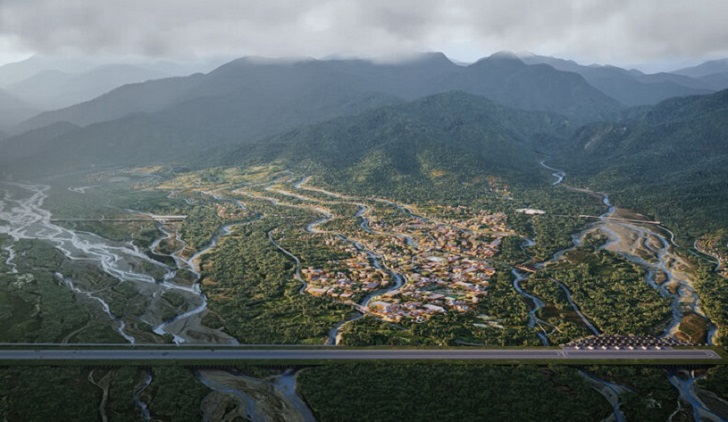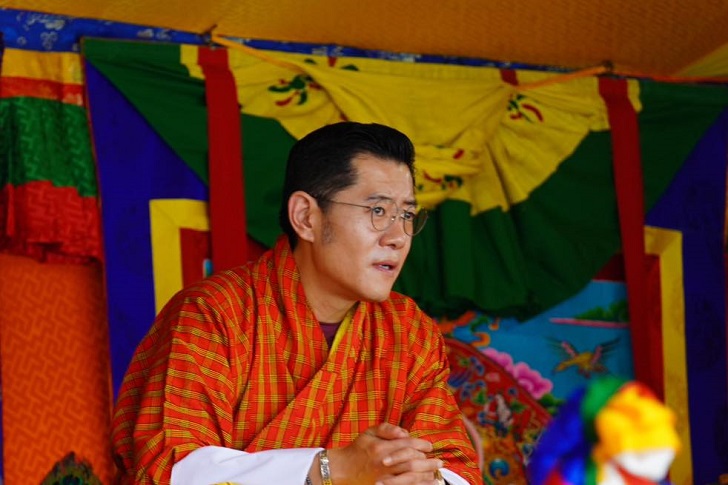Bhutan, famous for pioneering the Gross National Happiness (GNH) concept, is embarking on a transformative journey. It’s set to establish a "mindfulness city" that aims to foster wellness, sustainability, and economic growth. The Gelephu Mindfulness City (GMC), located in a special administrative zone, will connect South Asia to Southeast Asia, enhancing Bhutan’s global standing.
The Vision Behind the Mindfulness City
The mindfulness city concept centers on sustainable, mindful living. By encouraging eco-friendly practices, such as walking and cycling, GMC aims to reduce emissions and prioritize community well-being. The city will include green spaces for meditation, mindfulness-based education, and healthcare facilities, promoting a balanced lifestyle. These elements align with Bhutan’s commitment to happiness, making GMC a reflection of the country’s cultural and spiritual heritage.

Credit: Daily Bhutan | The Gelephu Mindfulness City will include green spaces for meditation, mindfulness-based education, and healthcare facilities, promoting a balanced lifestyle.
Strategic Economic Hub for South and Southeast Asia
Bhutan envisions GMC as an economic corridor connecting South Asia and Southeast Asia. Located near the Indian border, the city will foster industries ranging from tourism and technology to green energy and finance. The planned international airport and enhanced infrastructure aim to attract businesses interested in Bhutan's unique positioning. The region's strategic location and specialized regulatory framework provide an inviting space for foreign investment.
Sustainable Urban Development
Spread across 2,500 square kilometers, GMC will integrate eco-friendly architecture with Bhutan’s carbon-negative status. As the world’s first carbon-negative country, Bhutan has set a precedent for environmental consciousness. The city’s infrastructure will emphasize low-impact development, leveraging renewable energy sources to minimize its ecological footprint. This approach reflects Bhutan’s dedication to a sustainable future, with GMC positioned as a model for green urban planning.
Community and Well-Being at the Core
GMC significantly focuses on community and well-being, prioritizing a slower, mindful pace of life. Besides meditation and relaxation areas, the city will offer public community activities and educational programs centered on mindfulness. Residents and visitors can expect healthcare and wellness centers emphasizing preventive and holistic care. This well-rounded approach to well-being resonates with Bhutan’s Gross National Happiness philosophy, enriching the city’s cultural and spiritual character.
Fundraising Initiatives for a Sustainable Future
Funding for GMC’s foundational infrastructure began with a fixed-term deposit program for non-resident Bhutanese. This program seeks to build essential amenities, including the international airport. Bhutan also introduced a 10-year "Nation Building Bond" to raise $100 million. The goal isn’t just financial; it’s a call for the Bhutanese to contribute to a shared vision for a mindful, resilient future. This approach to community-backed development reflects the collaborative ethos of the mindfulness city.
Employment Opportunities and Economic Growth
Bhutan has faced economic challenges in recent years, with youth unemployment peaking at nearly 30% in 2022. GMC offers a unique solution to this issue by creating new jobs across various sectors, from finance and healthcare to agriculture and tourism. Authorities estimate that 150,000 people will reside in GMC within the next decade, with the population expected to exceed one million by completion. This growth aims to reduce Bhutan's reliance on aid, hydropower, and tourism, diversifying its economy.
The Project’s Development Timeline and Phases
GMC’s development will take place over the next 21 years, following a phased approach. Each phase will introduce new infrastructure, including roads, bridges, housing, schools, and hospitals. Private investment will play a crucial role in bringing this vision to life, as private partners fund various sectors of the city. This phased approach provides flexibility, allowing GMC to adapt and evolve with Bhutan’s economic and social needs over time.

@kingjigmekhesar | Instagram | King Jigme Khesar Namgyel Wangchuck proposed the mindfulness city concept to reflect Buddhist spiritual heritage.
Cultural and Spiritual Roots of the Mindfulness City
King Jigme Khesar Namgyel Wangchuck first proposed the mindfulness city concept, intending it to reflect Buddhist spiritual heritage. The city’s foundation in mindfulness aligns with Bhutan’s identity, which emphasizes happiness and well-being as fundamental values. The GMC initiative hopes to blend these cultural values with modern urban development, creating a city that balances tradition with progress.
Bhutan’s Unique Advantage as a Carbon-Negative Nation
As a carbon-negative nation, Bhutan has consistently shown global leadership in environmental sustainability. GMC’s focus on eco-friendly architecture and sustainable practices further reinforces this commitment. The mindfulness city’s approach to construction and energy use ensures it will contribute positively to Bhutan’s environmental goals, setting an example for countries worldwide looking to reduce their carbon footprints.




